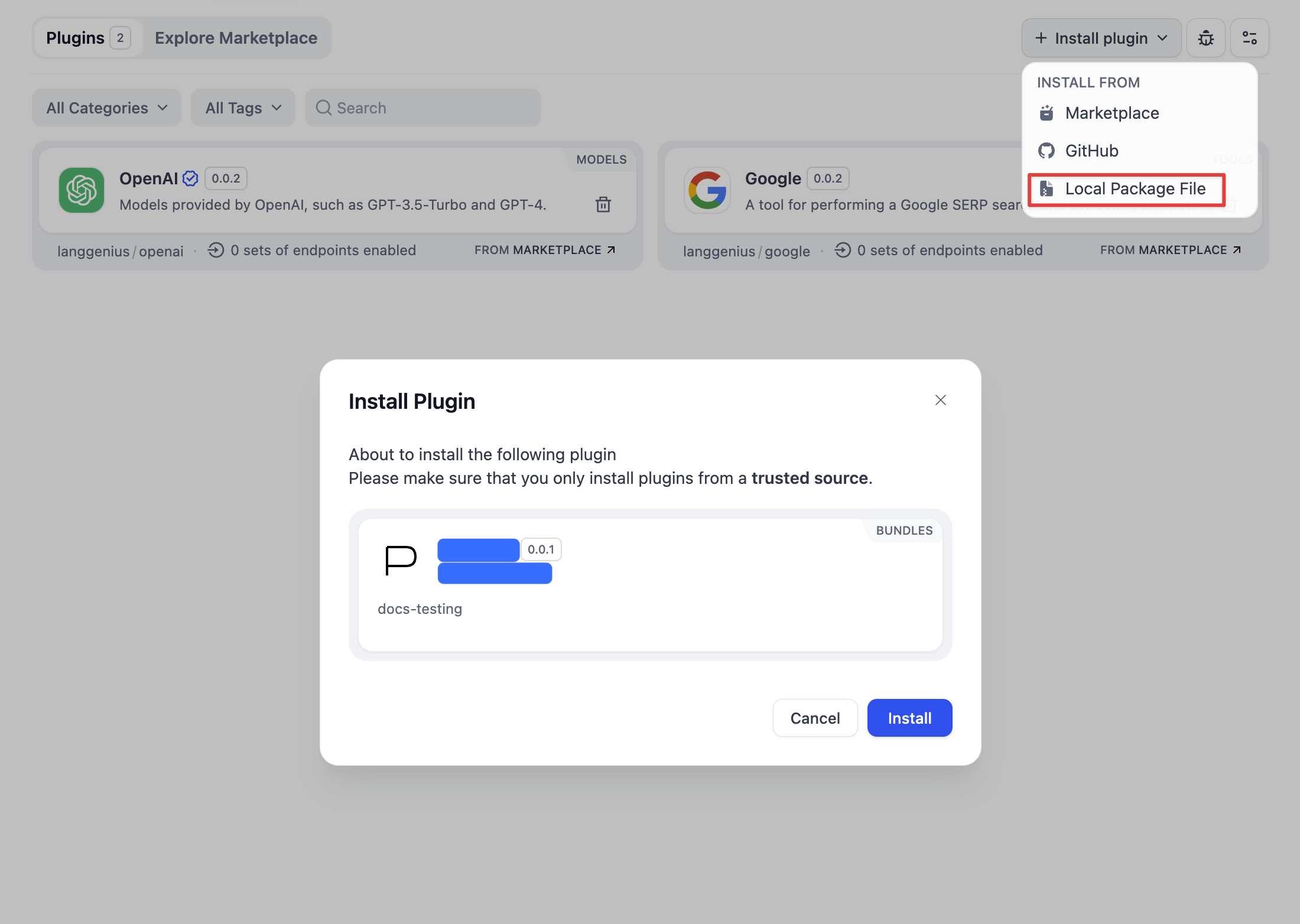- Features:
- Not dependent on online platforms, quick and flexible way to share plugins.
- Suitable for private plugins or internal testing.
- Publishing Process:
- Package the plugin project as a local file.
- Upload the file on the Dify plugins page to install the plugin.
Prerequisites
- Dify Plugin Development Tool, for detailed instructions, please refer to Initializing Development Tools.
dify version command in the terminal to check if it outputs version information to confirm that the necessary development tools have been installed.
Packaging the Plugin
Before packaging the plugin, please ensure that theAfter completing the plugin project development, make sure you have completed the remote debugging test. Navigate to the directory above your plugin project and run the following plugin packaging command:authorfield in the plugin’smanifest.yamlfile and the.yamlfile under the/providerpath is consistent with your GitHub ID. For detailed information about the manifest file, please refer to General Specifications.
.difypkg extension will be generated in the current path.

Installing the Plugin
Visit the Dify plugin management page, click Install Plugin in the upper right corner → Via Local File to install, or drag and drop the plugin file to a blank area of the page to install the plugin.
Publishing the Plugin
You can share the plugin file with others or upload it to the internet for others to download. If you want to share your plugin more widely, you can consider:- Publish to Individual GitHub Repository - Share the plugin through GitHub
- Publish to Dify Marketplace - Publish the plugin on the official marketplace
Related Resources
- Publishing Plugins - Learn about various publishing methods
- Initializing Development Tools - Configure plugin development environment
- Remote Debugging Plugins - Learn plugin debugging methods
- General Specifications - Define plugin metadata
- Plugin Development: Hello World Guide - Develop a plugin from scratch
Edit this page | Report an issue

